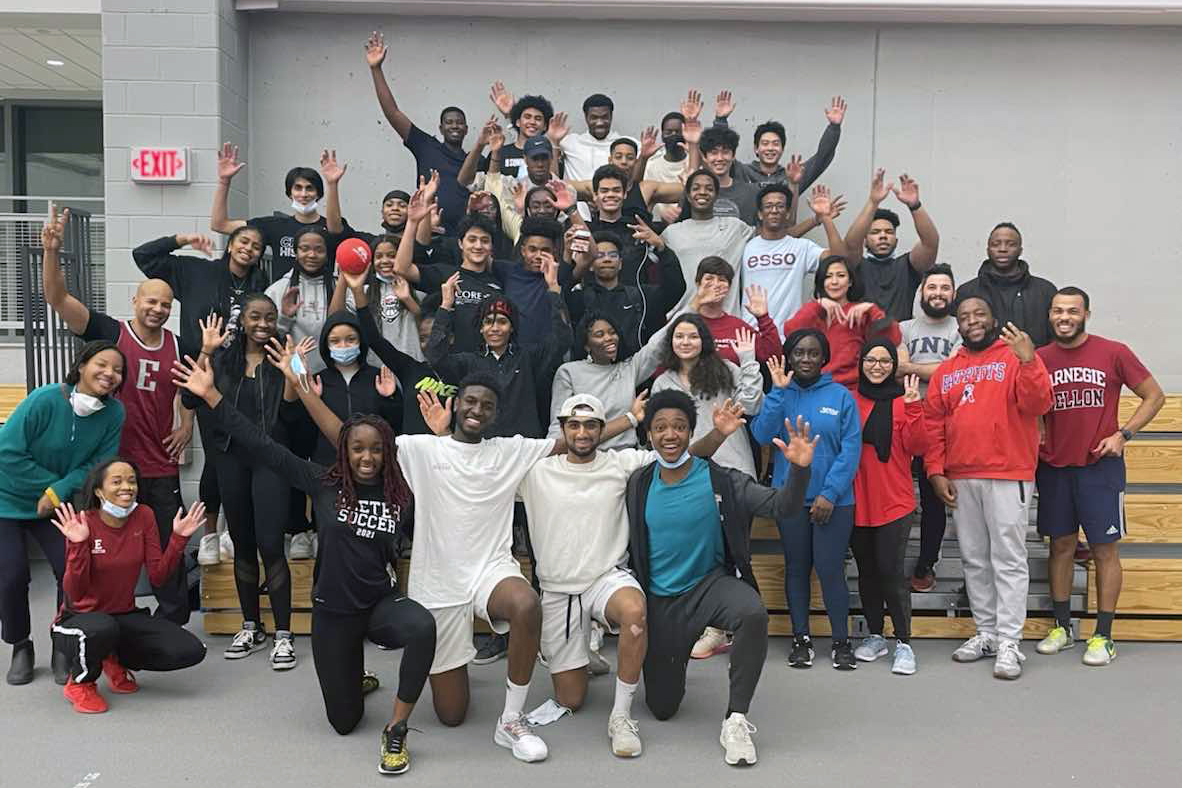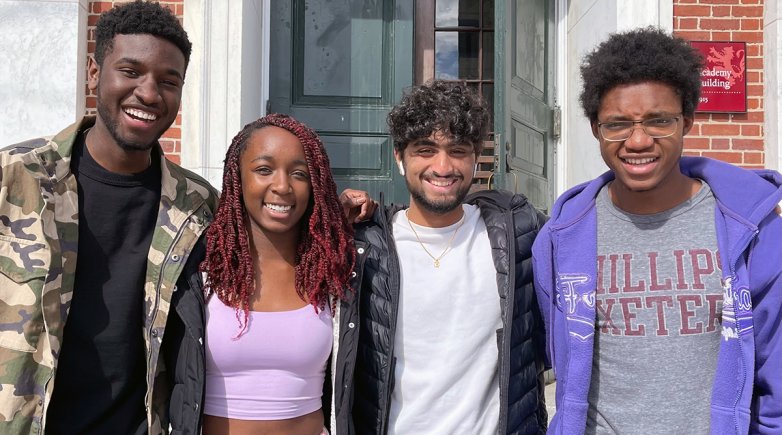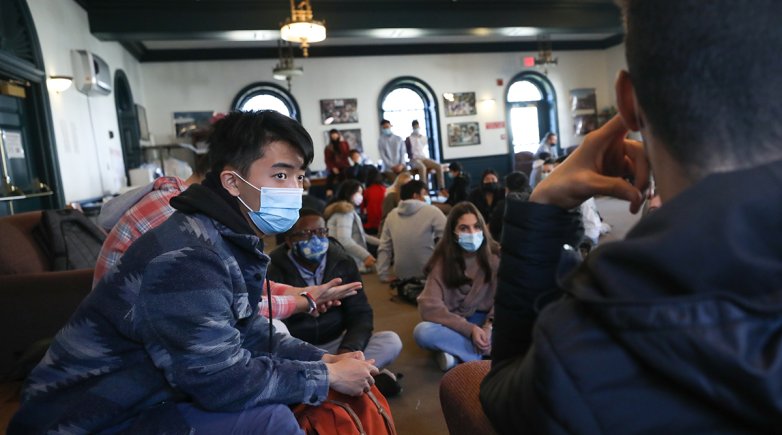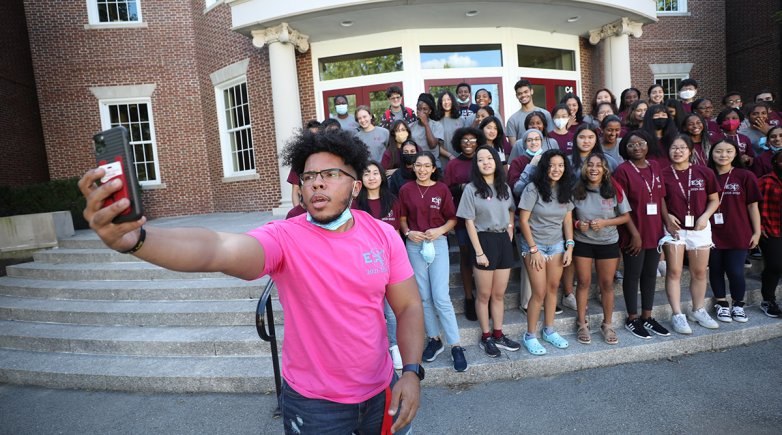Athletes for Racial Justice champion social change
Student group uses platform to promote equity at the Academy.
Athletes for Racial Justice leaders Mohammed Kane '22, Ifeoma Ajufo '22, Manan Mendiratta '22 and Akili Tulloch '22.
For decades, athletes have utilized their fame to amplify calls for civil rights and social change. Think Muhammad Ali, Jackie Robinson, LeBron James and Naomi Osaka, to name a few. Inspired by the legacies of such all-time greats, a group of Big Red athletes created a space on campus to contribute to Exeter’s efforts in promoting racial equity.
Founded in 2021 by Ifeoma Ajufo ’22, Mohamed Kane ’22, Manan Mendiratta ’22, and Akili Tulloch ’22, Athletes for Racial Justice came together as a melding of a Core Values Project and independent work under the guidance of former physical education instructor and track coach Toyin Augustus. “It was really motivational seeing those athletes in 2020 who did speak up and stopped playing as a form of protest,” says Ajufo, a member of the Exeter girls soccer and track teams. “That geared a lot of our conversations and how we view ourselves. We’re more than just athletes. We have a voice and we have the platform at Exeter to try and speak up against these issues.”
The group of about 30 student-athletes of color meet regularly to discuss current events, brainstorm ways to promote equity and inclusion on campus, and work with other like-minded student groups. “We had a joint meeting with the Girls in Sports club that was open to all Exonians where we talked about intersections between athletes of color and female athletes,” Kane says. “I thought it was really successful.”
The club also has an open line to the Academy’s administration through weekly conversations with Athletics Director Jason Baseden and with the support of Dean of Multicultural Affairs Sherry Hernández and Associate Dean of Multicultural Affairs Hadley Camilus. “There is no substitute for direct dialogue with feedback from the students,” Baseden says. “We want to make sure all of our student-athletes have a great experience regardless of their identities.”
These ongoing conversations help Ajufo and her clubmates feel heard. “When we present our problems to the administration, they’re really willing to listen to us,” Ajufo says.
One shared initiative between the group and the administration is to create more diversity on the rosters of traditionally homogenous teams. “Sports are passions and it’s something that you put a lot of time into, and the lack of representation shouldn’t be what steers you away from playing a sport,” Kane says. “Trying to recruit more diversity in the coaching staff would encourage more people to go into these sports,” Ajufo says.

During the winter term, the group hosted a dodgeball tournament in the William Boyce Thompson Field House that included the Office of Multicultural Affairs faculty, with a surprising result. “OMA beat all of our teams,” Ajufo says shaking her head and smiling.
With the club heads set to graduate in the spring, Kane hopes the group has established a foundation for future student-athletes of color to build on. “Being able to continue those open conversations with the Athletics Department and participate in making those decisions that will impact the athletes of color on campus, that’s one of the biggest legacies that I want to have left behind.”



